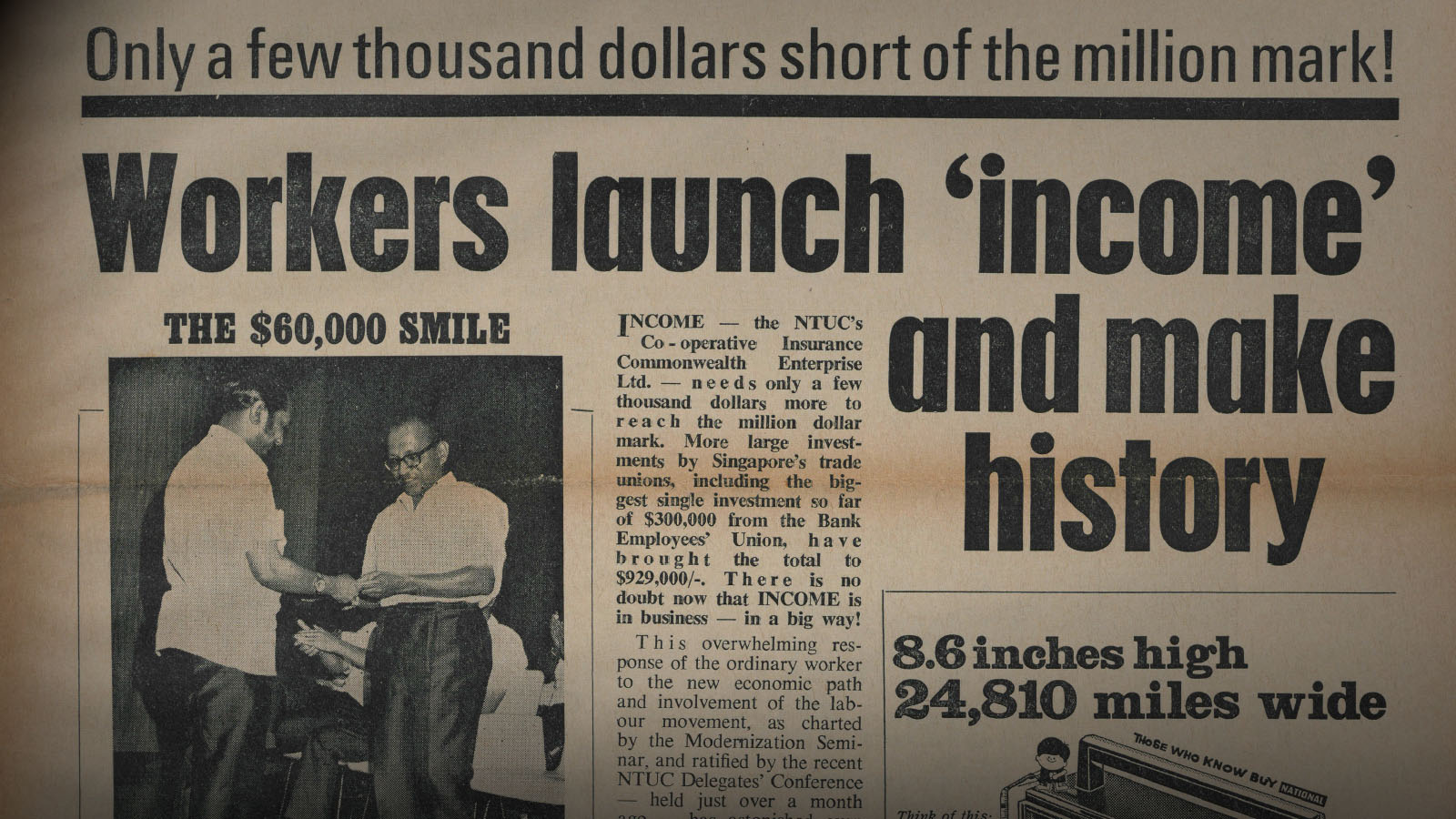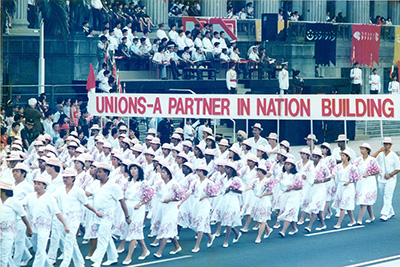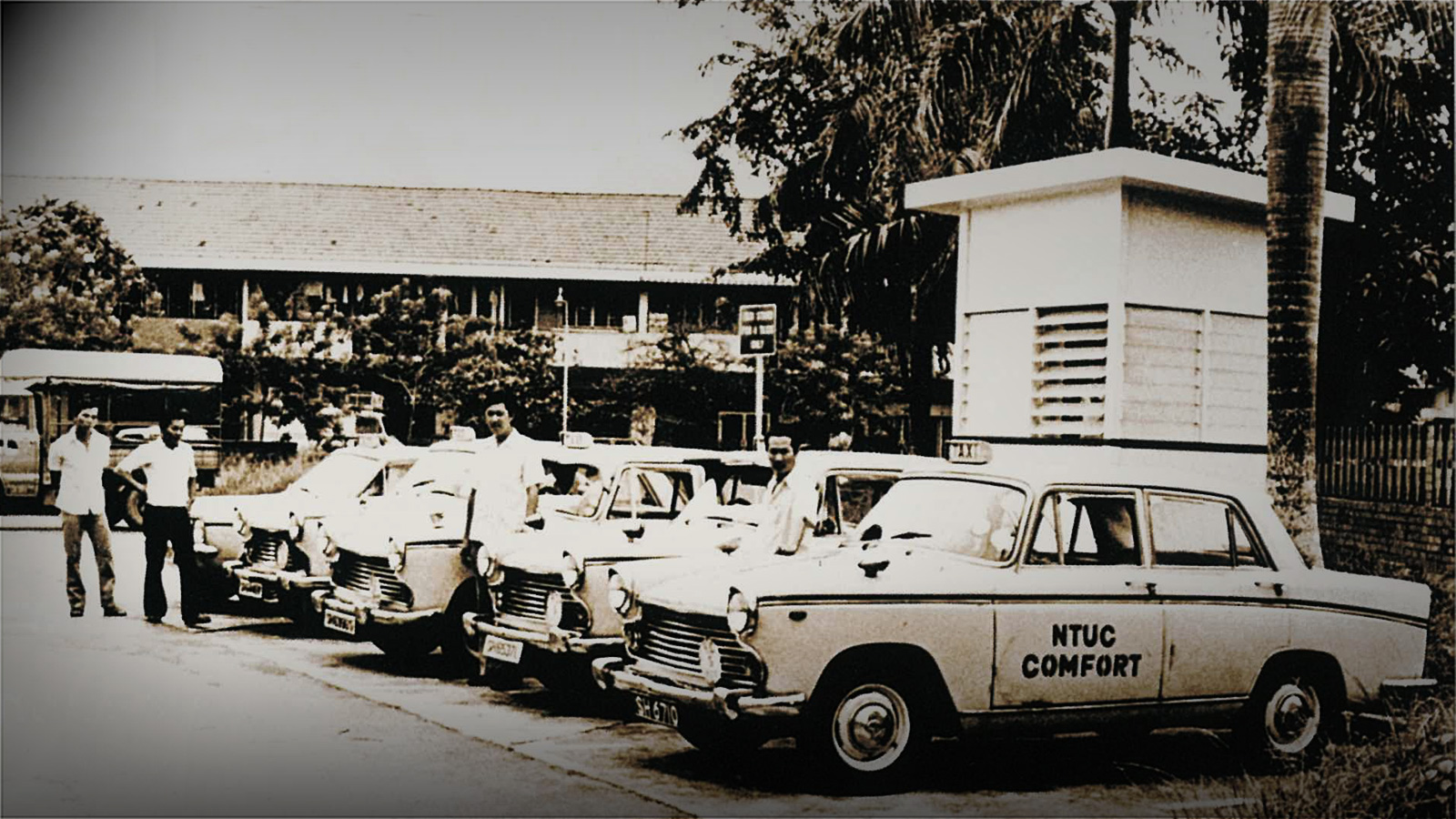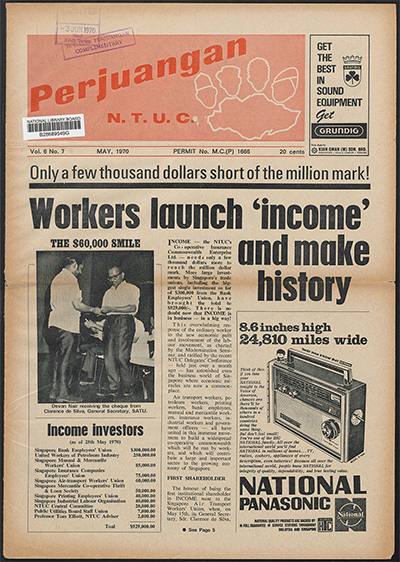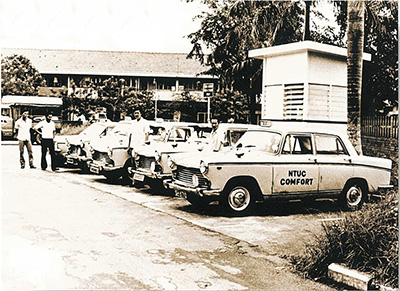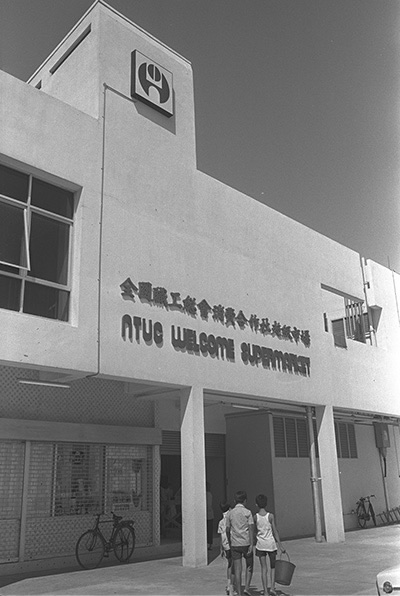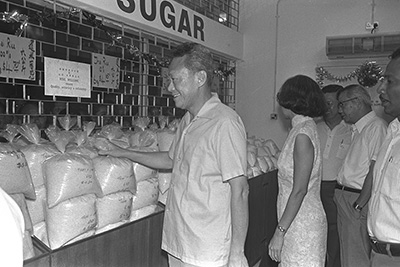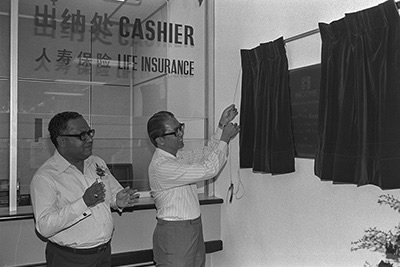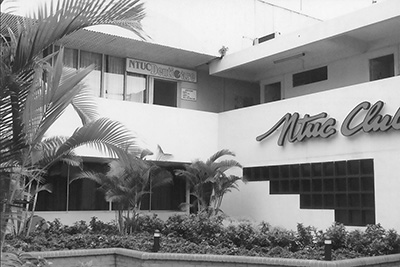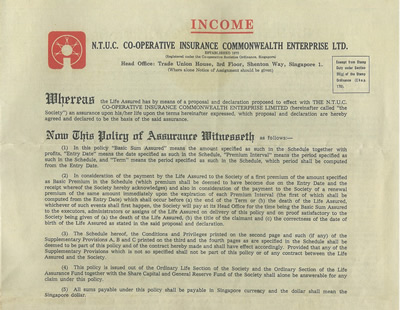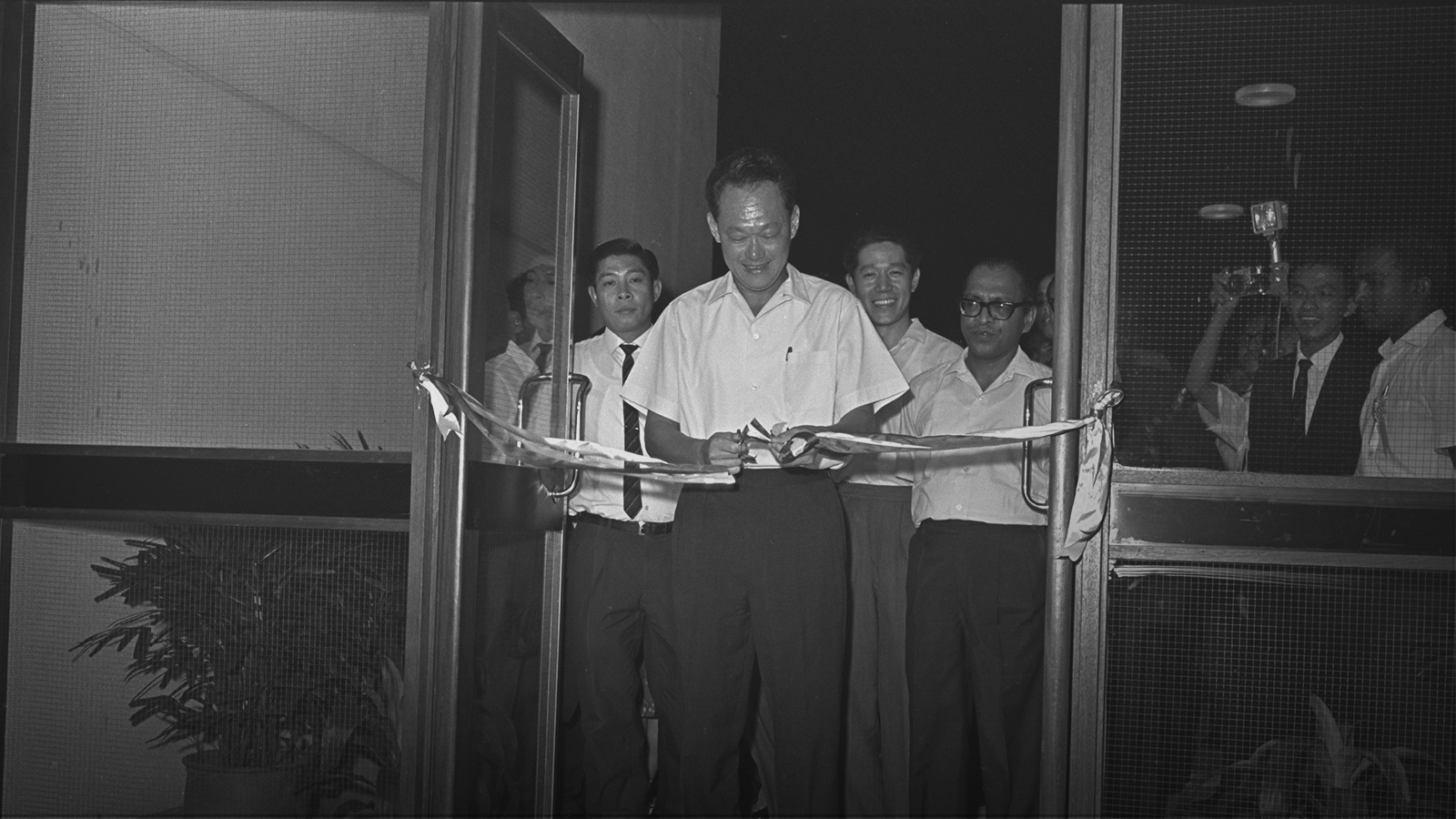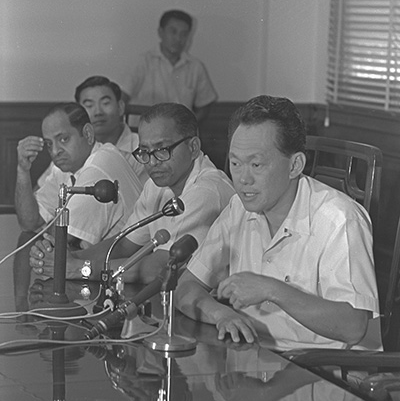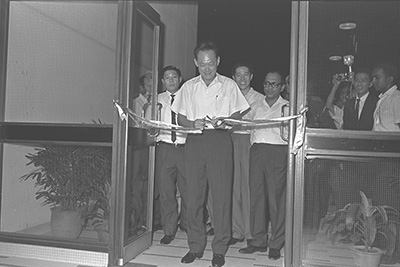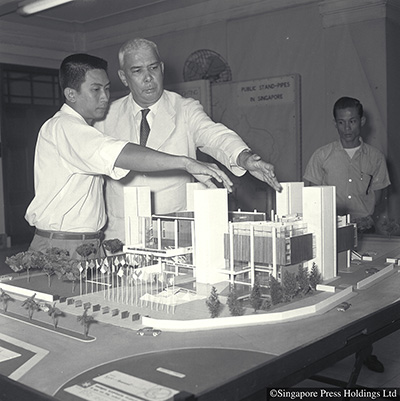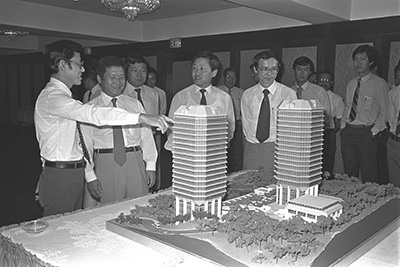Tripartism – the trusted relationship between workers, employers and the Government was buttressed through the setting up of the tripartite National Wages Council in 1972.
In 1964, as part of the People’s Action Party (PAP) Government’s aim to harness the trade unions for development, Finance Minister Goh Keng Swee proposed a Charter of Industrial Progress and a Productivity Code of Practice. Goh expected that the Charter would strengthen Singapore’s competitiveness ‘by introducing efficient management and production techniques, and with the full-hearted co-operation of the trade unions.’ On 15 January 1965, representatives from the NTUC, the Singapore Manufacturers’ Association and the Singapore Employers’ Federation signed the Charter for Industrial Progress and Productivity Code of Practice. The Charter ‘set forth the basic objectives of achieving higher productivity through closer co-operation between workers and employers on a common understanding of industrial progress through industrial partnership, justice and peace.’ This was the start of the tripartite cooperation model of industrial relations.
In 1970, the NTUC called for the establishment of a tripartite body consisting of representatives of government, management and organised labour on which would be placed the responsibility for the equitable formulation and implementation of the guidelines for wage increases, industry by industry, according to a flexible formula that will do justice to the varying conditions of economic activity and growth in Singapore.
In response, the Ministry of Labour announced the establishment of the National Wages Council under the chairmanship of Professor Lim Chong Yah from the University of Singapore in February 1972. The tripartite body would be responsible for:
- formulation of general guidelines on wages policy;
- recommending necessary adjustments in wage structure;
- advising on desirable incentive systems for the promotion of operational efficiency and productivity in various enterprises.
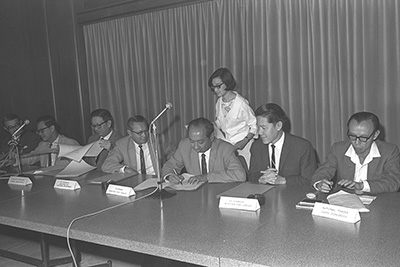
Ministry of Information and the Arts Collection, courtesy of National Archives of Singapore
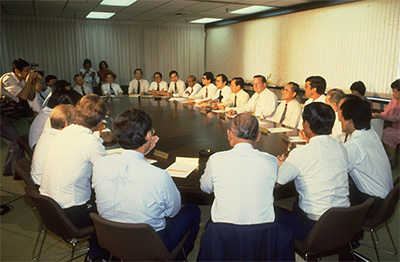
Ministry of Information and the Arts Collection, courtesy of National Archives of Singapore

